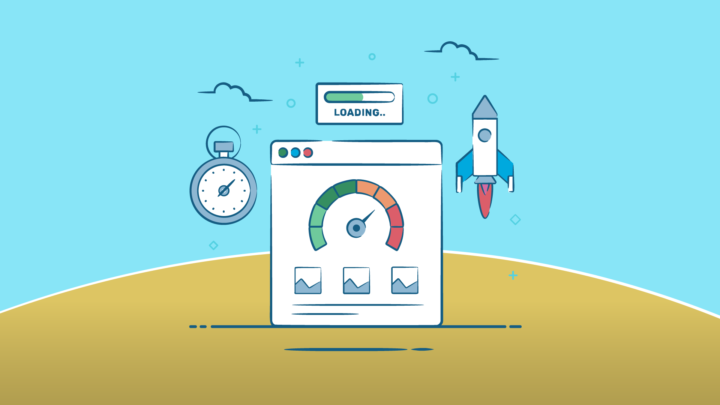Welcome to the virtual pitstop where we rev up your website’s engine! Uncover the whimsical tricks and techniques to optimize your website’s speed, delivering a turbocharged user experience that will leave visitors cheering for more. Get ready to zoom past the competition!
What is website speed?
Website speed refers to the measure of how quickly a website loads and displays its content to visitors. It encompasses various factors, including the time it takes for the webserver to respond, the download speed of resources like images and scripts, and the rendering speed of the webpage in the user’s browser.
In simpler terms, website speed is like the “fast lane” of the internet highway, determining how swiftly users can access and interact with a website’s content. It plays a crucial role in user satisfaction, search engine rankings, and overall online performance. Think of it as the digital equivalent of a well-oiled machine, ensuring a smooth and efficient browsing experience for visitors.
How to check website speed?
To check the speed of a website, you can use various online tools that provide insights and metrics. Here’s how you can check website speed:
- PageSpeed Insights: Visit the PageSpeed Insights tool by Google and enter your website’s URL. It will analyze your website’s performance and provide suggestions for improvement.
- GTmetrix: Go to the GTmetrix website, enter your website’s URL, and run the test. It will generate a detailed report, including page load time, page size, and recommendations for optimization.
- Pingdom Website Speed Test: Use the Pingdom Website Speed Test tool by SolarWinds. Enter your website’s URL and select a server location to test from. It will provide a performance grade, load time, and insights into various performance aspects.
- WebPageTest: Access the WebPageTest tool and enter your website’s URL. Choose a test location and browser, and run the test. It will provide detailed information about your website’s performance, including load time, first-byte time, and waterfall charts.
- Lighthouse: If you’re using the Google Chrome browser, you can access the Lighthouse tool built into the browser’s developer tools. Open the developer tools (Ctrl+Shift+I or right-click and select “Inspect”) and go to the “Lighthouse” tab. From there, you can run an audit on your website’s performance, accessibility, and more.
Why Is Page Speed Important, and what is a good site speed?
Page speed is crucial for several reasons:
- User Experience: Faster-loading websites provide a better user experience. Users expect websites to load quickly, and if a site is slow, they are more likely to abandon it and seek alternatives. A fast-loading website enhances user satisfaction, encourages longer visits, and reduces bounce rates.
- SEO Performance: Search engines, like Google, consider page speed as a ranking factor. Faster websites tend to rank higher in search results, leading to increased visibility and organic traffic. Improved SEO performance translates to more opportunities for attracting and engaging with users.
- Conversion Rates: Website speed directly impacts conversion rates. Research shows that even a small delay in page load time can result in higher bounce rates and lower conversion rates. Faster-loading websites provide a seamless user experience and increase the likelihood of visitors taking desired actions, such as making a purchase or filling out a form.
- Mobile Experience: With the increasing use of mobile devices, having a fast-loading website is even more critical. Mobile users often have limited bandwidth and slower internet connections. Optimizing website speed ensures a smooth mobile browsing experience, helping businesses reach and engage with their mobile audience effectively.
A good site speed can vary depending on factors such as website complexity, content type, and user expectations. However, as a general guideline, a good site speed is typically considered to be under three seconds for the full page to load. Ideally, the website should start rendering and displaying content within the first one to two seconds. It’s important to note that the faster the site speed, the better. Aim for continuous optimization to achieve the fastest loading times possible.
How to Optimize Website Speed and Enhance the user experience?
To optimize website speed and enhance user experience, consider implementing the following techniques:
- Enable Browser Caching: Utilize browser caching to store static files (such as images, CSS, and JavaScript) on a user’s device. This allows returning visitors to load the website faster since their browser doesn’t need to download the same files again.
- Compress and Minify Files: Compress large files, such as images, using techniques like image compression and lazy loading. Additionally, minify CSS and JavaScript files by removing unnecessary characters, comments, and whitespace to reduce file size and improve load times.
- Optimize Images: Resize and compress images without compromising quality. Use appropriate file formats (JPEG for photographs, PNG for graphics with transparency) and leverage modern image formats like WebP. Implement lazy loading to load images as users scroll down the page.
- Use Content Delivery Networks (CDNs): Employ CDNs to store website files on multiple servers across different geographic locations. This reduces latency by delivering content from the server closest to the user, resulting in faster loading times.
- Reduce HTTP Requests: Minimize the number of HTTP requests by combining and minifying CSS and JavaScript files. Use CSS sprites to combine multiple images into a single file, reducing the number of image requests.
- Optimize Server Response Time: Improve server response time by using a reliable hosting provider, optimizing server configurations, and utilizing caching mechanisms such as server-side caching or content delivery network caching.
Conclusion
Optimizing website speed is crucial for enhancing the user experience and achieving online success. A fast-loading website not only keeps users engaged but also improves SEO performance, conversion rates, and mobile experience. At 1702 digital, we understand the significance of website speed and its impact on user satisfaction and business performance. Our team of experts is dedicated to helping businesses optimize their website speed, ensuring a seamless and delightful user experience. From analyzing performance metrics to implementing tailored solutions, we strive to enhance website speed, boost conversions, and leave visitors amazed. Let us supercharge your online presence and propel your website to new heights of speed and success. Contact us today for a turbocharged digital journey!

